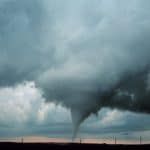U.S. nuclear double standards
By Hugh Gusterson | February 20, 2008
As seen from Pakistan, U.S. nuclear weapons policies present troubling trends; an exclusive interview with the irreverent Brig. Gen. Atta M. Iqhman.
My last column quoted unusually blunt remarks by Pakistani Brig. Gen. Atta M. Iqhman and his
deputy Col. Bom Zhalot. They expressed concern about the inadequacy of U.S. procedures for handling
nuclear weapons and condemned U.S. double standards about nuclear weapons. Attentive readers
wondered why they had not heard of the Brigadier-General before and why the only source produced by
a Google search on his name was my article. Does a person’s reality have to be affirmed by Google,
Wikipedia, or Who’s Who for his opinions to matter? Others asked if it would be possible to hear
more from Atta M. Iqhman given his refreshing candor. Fortunately, I was able to win an exclusive
interview with Iqhman.
Question: We were hoping Col. Bom Zhalot would be with you.
Atta M. Iqhman: Unfortunately, he’s been transferred to Waziristan following some
injudicious remarks he made at a recent press conference.
Question: How unfortunate. Maybe we could begin by talking about Iran. Many U.S.
analysts believe Iran is seeking to acquire nuclear weapons. Does Iran’s nuclear program concern
you?
Iqhman: Pakistan is not eager to acquire yet another neighbor with nuclear
weapons. On the other hand, U.S. hysteria about Iranian nuclear weapons is a little hard to fathom.
U.S. defense intellectuals have spent years telling us that nuclear deterrence is only stable when
one country’s nuclear weapons are balanced by another’s. For 40 years U.S. policy makers justified
each new nuclear weapon by saying it was needed to stabilize deterrence. At the moment, Israel’s
nuclear weapons are not balanced by others in the Middle East. Presumably the region would be
stabilized if one of Israel’s neighbors acquired a nuclear capability. Wouldn’t that be better for
everyone?
Question: The Bush administration wants to sign an agreement to sell nuclear fuel
to India for its reactors, although India has not signed the Nuclear Non-Proliferation Treaty
(NPT). How threatening is this to Pakistan?
Iqhman: Pakistan is concerned that, if India can run its reactors with U.S. fuel,
it can then divert more of its locally produced nuclear material into weapons. And it has not
escaped our notice in Pakistan that, although we have made great sacrifices to help the United
States in its struggle with the Taliban, it is India, not Pakistan, that gets rewarded with nuclear
fuel. But there is a silver lining to this cloud: U.S. actions are undermining the NPT.
Question: That’s a silver lining?
Iqhman: Absolutely! Israel, India, and Pakistan are the only countries not to have
signed the NPT. This leaves us potentially quite isolated. Now, as our former Prime Minister
Zulfikar Ali Bhutto said, the Pakistani people would eat grass if necessary to get the Bomb. But we
would rather not pay for our Bomb with international isolation. When the five official nuclear
powers ended nuclear testing in the 1990s we lost a valuable fig leaf for our own nuclear program.
So we are quite relieved that the Bush administration has decided to weaken the nonproliferation
regime by carving out exceptions that gratify its short-term commercial interests. This benefits
the U.S. in the short term but it helps Pakistan in a back-handed way in the long term.
Question: Wouldn’t Pakistan be safer if India and Pakistan denuclearized and the
nonproliferation regime was strengthened?
Iqhman: I notice you don’t say anything about U.S. denuclearization. Why are
Americans, sitting atop their throne of thousands of nuclear weapons, always telling other
countries that they would be safer without nuclear weapons? The Bush administration plans to spend
$150 billion on a new production complex for nuclear weapons even as it preaches nuclear abstinence
to us.
Question: Your point is well taken; but still, wouldn’t India and Pakistan be
better off if they could walk back from the nuclear precipice.
Iqhman: I don’t think so. Quite apart from the fact that our nuclear deterrent
equalizes the balance of power with our larger neighbor to the east, nuclear weapons are also a
status symbol in the international system. It’s no coincidence that the five members of the U.N.
Security Council were the first five countries to get nuclear weapons. The Pakistani people got the
message loud and clear that, to be respected as an international power, you must have nuclear
weapons. By successfully testing the Bomb in 1998, our patriotic scientists put us far higher in
the international system than our GDP alone would justify. We have a pretty awful human rights
record, but we get respect internationally because we have the Bomb. We now, as you Americans would
say, punch above our weight.
Question: So nuclear weapons are a sort of status symbol, like having a Lexus?
Iqhman: Well, that’s not all. They are also an insurance policy against the United
States. Why, despite the fact that the Taliban operate freely in our tribal areas, are there U.S.
troops all over Afghanistan but not Pakistan? Because we have nuclear weapons and Afghanistan does
not! As India’s General Sundarji famously said, the lesson of the 1991 war between the United
States and Iraq was not to get into a conflict with the United States unless you already had
nuclear weapons.
Question: Do you have a preference between Republicans and Democrats in the United
States?
Iqhman: Although the United States constantly intervenes in our domestic politics,
I would not want to be accused of interfering in yours. Let me just say that we are very satisfied
that the United States has in recent years elected mostly hawkish administrations with a
pathological hatred of arms control agreements. The U.S. military budget is larger than the
military budgets of all the other countries in the world combined. If there were no nuclear weapons
anywhere, no country in the world would be safe from U.S. conventional military dominance.
Fortunately, a group of ideologues in your Congress and your defense and foreign policy
institutions have defunded arms control institutions and gutted arms control treaties. People like
John Bolton, who has never seen an arms control agreement he didn’t want to destroy! Such people
fortunately do not understand how arms control treaties often lock in the hegemony of the strongest
power and instead have opted for a constant race for military dominance which they believe the
United States will always win. In the process, they have made it easier for us to pursue our own
military programs–indeed, they’ve often sold us the parts we need to grow our military programs.
Then they act surprised when we test a bomb, and they try to blame it on the arms controllers!
Question: Thank you for your time Brigadier-General. I hope you too don’t get
reassigned to Waziristan.
Iqhman: Indeed.
Together, we make the world safer.
The Bulletin elevates expert voices above the noise. But as an independent nonprofit organization, our operations depend on the support of readers like you. Help us continue to deliver quality journalism that holds leaders accountable. Your support of our work at any level is important. In return, we promise our coverage will be understandable, influential, vigilant, solution-oriented, and fair-minded. Together we can make a difference.
Topics: Columnists














